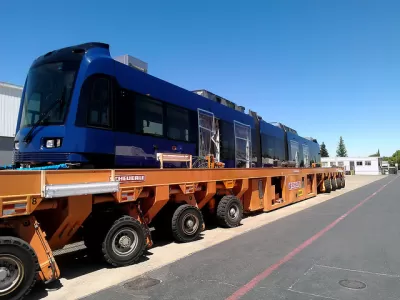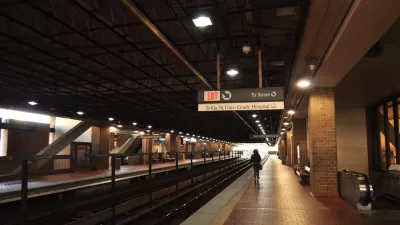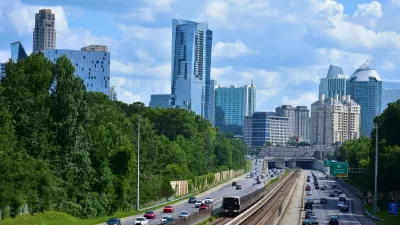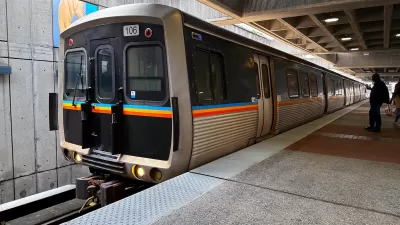The city of Atlanta recently gained a windfall of transit funding revenue in the form of a half-cent sales tax. The question now becomes whether the city can maximize the $2.5 billion investment.

Yonah Freemark provides in-depth analysis of Atlanta's planned $2.5 billion investment in the Metropolitan Atlanta Rapid Transit Authority (MARTA) system, as enabled by a half-cent sales tax approved by Atlanta voters in November 2016.
Freemark evaluates the potential of that funding by exploring a few key decisions still looming for Atlanta residents, politicians, and planners. For instance, Freemark asks, "What can the new revenue fund?" (The list of potential projects would require a lot more than $2.5 billion to fun.) To recommend some metrics for considering how to prioritize the potential projects, Freemark examines the density of residential and commercial along the proposed transit routes, along with demographic data, the politics of rights-of-way, and the future of infill development in the city.
Freemark's assessment at this point in the process is mostly positive, deciding that the city will "beef up existing bus and rail service and build new lines in central areas with good concentrations of people and jobs."
FULL STORY: Atlanta’s Raising $2.5 Billion to Invest in Transit. Will It Be Money Well-Spent?

Alabama: Trump Terminates Settlements for Black Communities Harmed By Raw Sewage
Trump deemed the landmark civil rights agreement “illegal DEI and environmental justice policy.”

Study: Maui’s Plan to Convert Vacation Rentals to Long-Term Housing Could Cause Nearly $1 Billion Economic Loss
The plan would reduce visitor accommodation by 25% resulting in 1,900 jobs lost.

Why Should We Subsidize Public Transportation?
Many public transit agencies face financial stress due to rising costs, declining fare revenue, and declining subsidies. Transit advocates must provide a strong business case for increasing public transit funding.

Wind Energy on the Rise Despite Federal Policy Reversal
The Trump administration is revoking federal support for renewable energy, but demand for new projects continues unabated.

Passengers Flock to Caltrain After Electrification
The new electric trains are running faster and more reliably, leading to strong ridership growth on the Bay Area rail system.

Texas Churches Rally Behind ‘Yes in God’s Back Yard’ Legislation
Religious leaders want the state to reduce zoning regulations to streamline leasing church-owned land to housing developers.
Urban Design for Planners 1: Software Tools
This six-course series explores essential urban design concepts using open source software and equips planners with the tools they need to participate fully in the urban design process.
Planning for Universal Design
Learn the tools for implementing Universal Design in planning regulations.
Caltrans
Smith Gee Studio
Institute for Housing and Urban Development Studies (IHS)
City of Grandview
Harvard GSD Executive Education
Toledo-Lucas County Plan Commissions
Salt Lake City
NYU Wagner Graduate School of Public Service





























